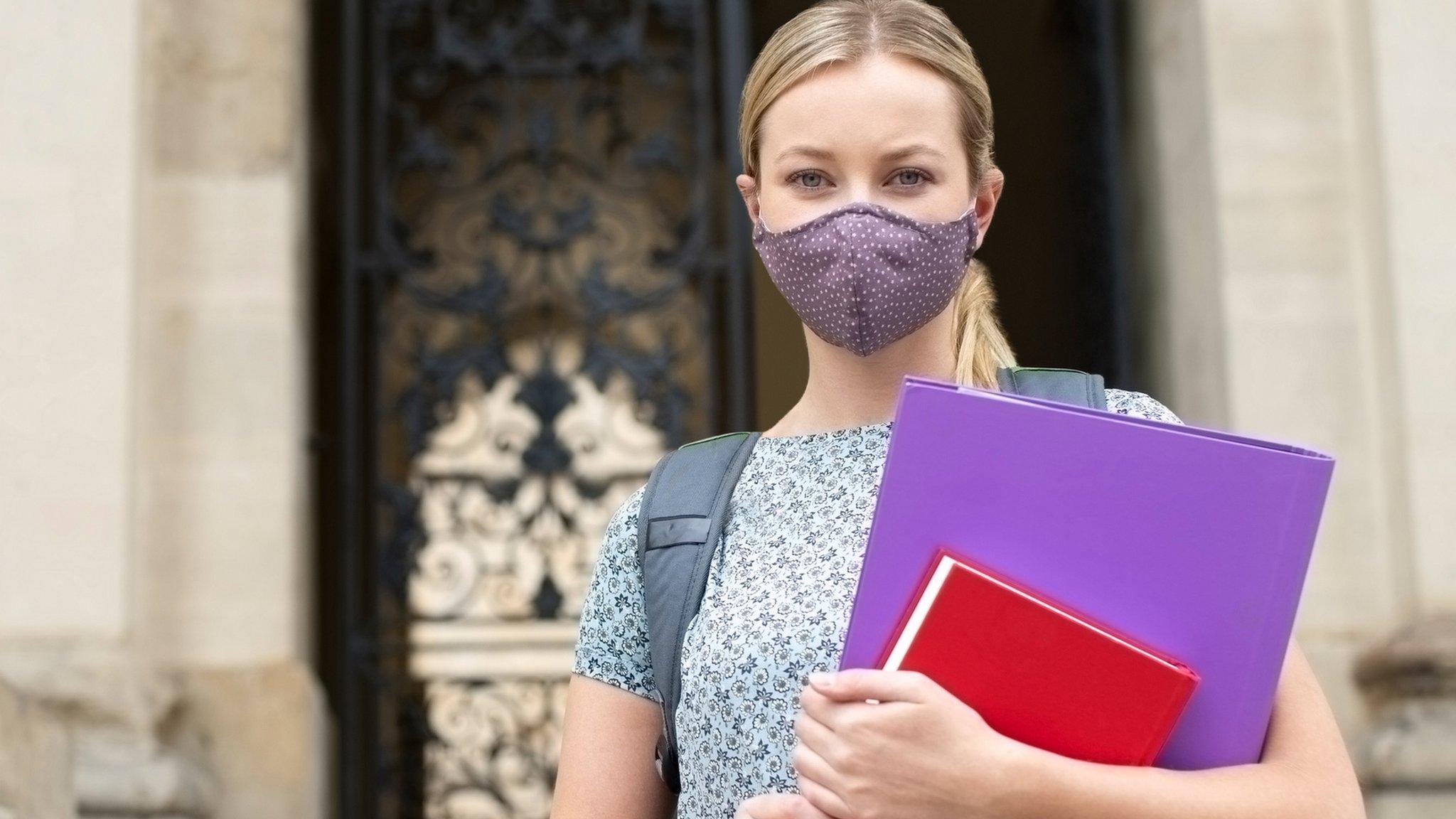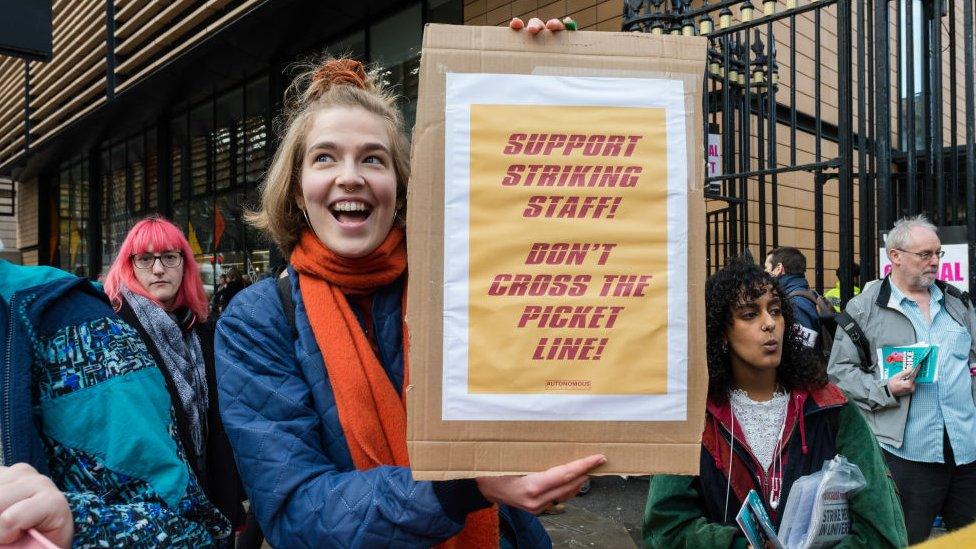University student complaints hit record high in England and Wales for fourth successive year
- Published
- comments

The number of student complaints about university courses in England and Wales reached a record high for a fourth year running, in 2022.
The Office of the Independent Adjudicator (OIA) received 2,850 complaints - 3% more than in 2021 - and £1,050,114 was awarded in compensation.
There are around 2.5 million students in England and Wales, and Universities UK said most had positive experiences.
Just under a quarter of the 2022 complaints related to the pandemic.
That compared with more than a third of those received in 2021, although Covid still appears to be having an impact.
The number of student complaints about academic appeals, including grades, made up 38% of the total - up from 29% in 2021.
The rise comes after universities ended policies that protected students' grades from Covid disruption.
"No detriment" or "safety net" policies introduced in 2020-21 often meant students' grades were based on their performance up until the pandemic.
There were fewer appeals while they were in place, according to the OIA report. But many institutions ended them in 2021-22.
Complaints about service issues, such as teaching, also represented 38% - although this was down from 45% in 2021.
'It's disappointing to throw that much money away'

Lydia Pennell said her course did not live up to what she had been promised
Lydia Pennell, 22, left Manchester Metropolitan University after her first year of a fashion design course, which she began in September 2020.
She told the BBC that most of the teaching was online, so she missed out on time using the facilities.
"I didn't make a single garment during my first year. I didn't know how to sew, or how to use any of the machines in uni," she said.
In one online workshop, she said students were asked to use wine bottles instead of mannequins, and dress them using paper and masking tape, rather than fabric.
Miss Pennell complained to the OIA last year, having already complained to the university. None of the complaints were upheld.
She said she was frustrated about the prospect of paying back her tuition fee loan for that year.
"It's disappointing to throw that much money away for an outcome that doesn't exist at all," she said.
Manchester Metropolitan University said teaching took place online throughout national lockdowns, and in-person sessions were available when restrictions were not in place.
A spokesman said it provided "a wide range of practical support for students to work from home", which included sewing machines for second and third-year fashion students, as well as "mini mannequins".
Miss Pennell is among students who are seeking compensation from universities through the Student Group Claim over disruption to their education during Covid.
Ryan Dunleavy of Harcus Parker, one of the law firms representing them, said: "Some have now left university, feeling thoroughly disappointed about the subpar service they received, which in no way reflected what they had been promised by their universities.
"Those who are still on courses at their universities tend to feed back to us that how they are being taught is still not up to the standard that they were promised."
A quarter of complaints to the OIA in 2022 were classed as "justified" or "partly justified", or were settled in favour of the student.
A group of more than 400 students received £640,000 in compensation.
'Increasing levels of distress'
Felicity Mitchell, independent adjudicator at the OIA, said 2022 was "another difficult year for students and providers".
"We are seeing increasing levels of distress among students who are struggling to cope, and this is a major concern," she said.
"At the same time, the pressures on providers make it more difficult for them to support students effectively."
Universities will face "soaring demand" for places in the coming years, according to admissions service Ucas.
The number of applicants could grow by 30% between 2022 and 2030, it said - reaching about one million by the start of the next decade.
Strike action over pay, working conditions and pensions has been adding to pressure on universities in recent years.
The OIA said only a "small number of complaints" related to industrial action last year.
However, there has been more action this year, with university staff walking out again in February and March. A marking boycott has now started at more than 140 institutions, and further strike dates could be announced.
A spokeswoman for Universities UK, which represents 140 institutions, said the OIA report helped universities know "how and where to improve".
She said most students had positive experiences, but that some dissatisfaction was "inevitable".
Related topics
- Published4 May 2022

- Published20 October 2023
